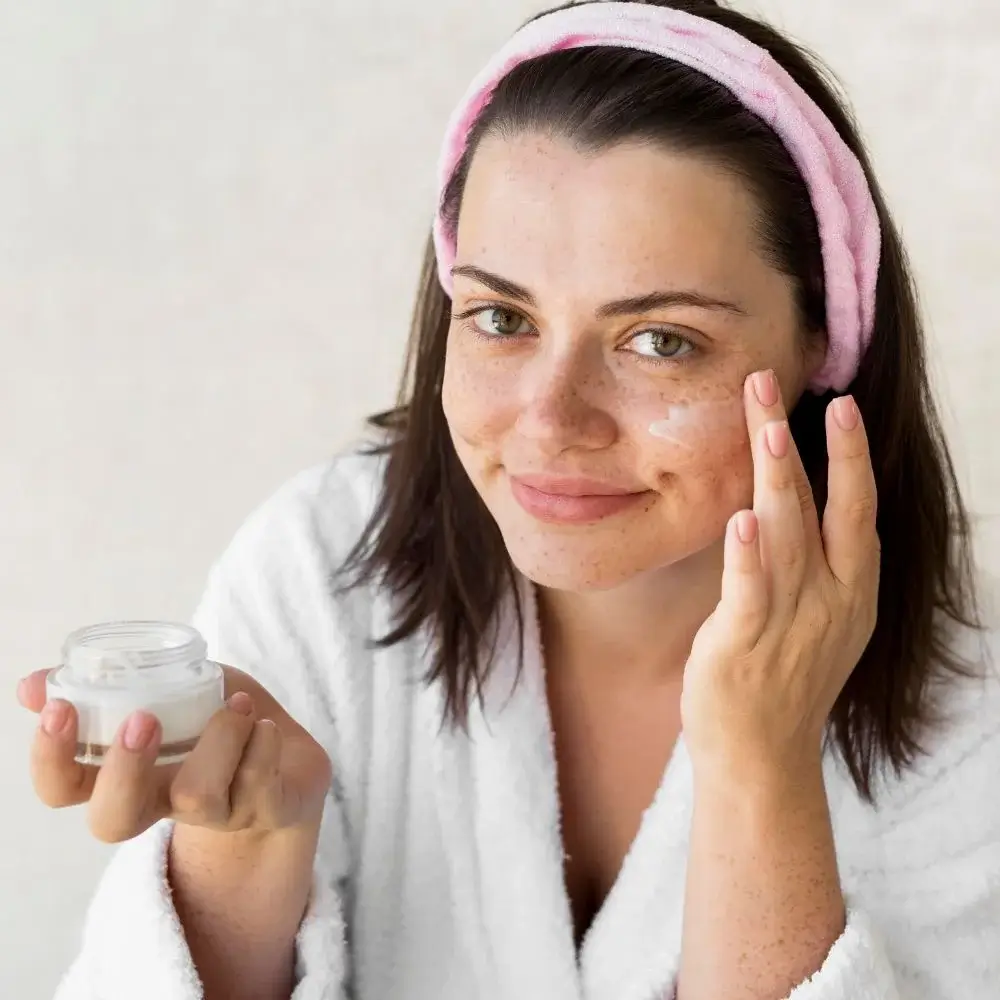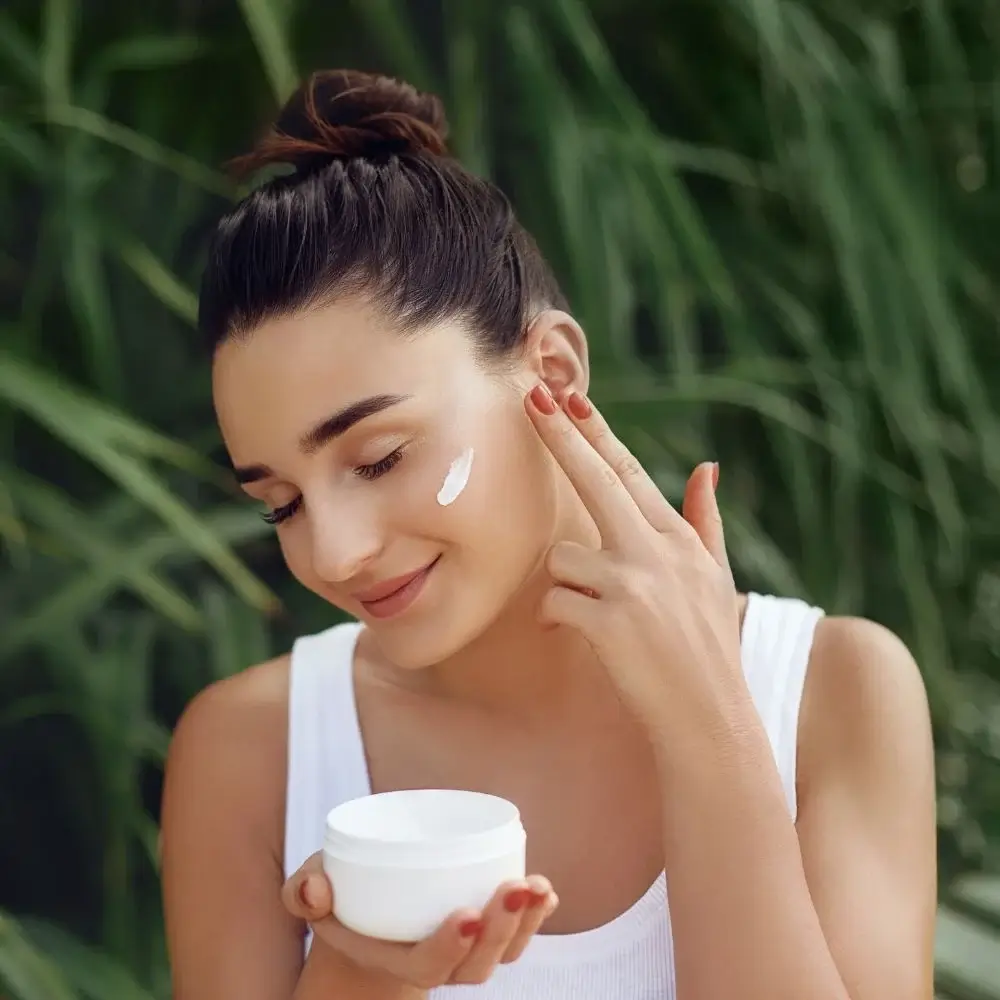In recent years, hyaluronic acid has become a popular skincare ingredient. It's known for its ability to hydrate the skin and reduce the appearance of fine lines and wrinkles. However, many wonder if hyaluronic acid moisturizer suits all skin types. In this blog post, we'll explore the benefits of hyaluronic acid and determine whether it's suitable for every skin type.
Hyaluronic acid is a natural substance that's already present in our skin. It's responsible for maintaining moisture levels and keeping your skin hydrated. However, our skin's ability to produce hyaluronic acid decreases as we age, leading to dryness and fine lines. Hyaluronic acid moisturizer helps to replenish the skin's moisture levels, resulting in younger-looking and hydrated skin.
One of the benefits of hyaluronic acid is that it's suitable for all skin types. You can use a hyaluronic acid moisturizer whether you have oily, dry, or combination skin. Unlike other moisturizing ingredients, hyaluronic acid is non-greasy and absorbs quickly, making it ideal for oily skin types.
Another benefit of hyaluronic acid moisturizer is that it's gentle on the skin. Unlike some exfoliating or anti-aging ingredients, hyaluronic acid won't irritate your skin or cause redness. It's particularly beneficial for sensitive skin types that are prone to irritation.
However, it's essential to note that hyaluronic acid moisturizer may not provide enough moisture for dehydrated skin. Using a heavier moisturizer with other hydrating ingredients is best if you have severely dry skin. Similarly, if you have acne-prone skin, you should check the ingredients in your hyaluronic acid moisturizer to ensure it's non-comedogenic and won't clog your pores.
If you're new to using hyaluronic acid moisturizer, starting slowly and introducing it gradually into your skincare routine is essential. Begin using it every other day and gradually increase it to daily use. This way, you can monitor how your skin reacts to the new ingredient. Remember, not every product works for everyone, so it's always good to listen to your skin and adjust your routine as needed.
Hyaluronic acid moisturizer is suitable for all skin types, making it a versatile and essential addition to your skincare routine. You can benefit from its hydrating and anti-aging properties if you have oily, dry, or combination skin. However, it's important to note that you may need to supplement it with other hydrating ingredients if you have severely dry skin. Overall, hyaluronic acid moisturizer is a must-try for anyone looking to improve their skin's hydration levels and combat the signs of aging.
Beautiful, soft, and supple skin - we all want it! And when it comes to glowing, healthy skin, the right moisturizer can make all the difference. That's why we've worked to research and bring you the best hyaluronic acid moisturizers on the market. With their ultra-hydrating properties and ability to plump fine lines and wrinkles, these moisturizers are the secret to achieving that youthful, dewy complexion. So, what are you waiting for? Follow the link to discover your new favorite hyaluronic acid moisturizer and take the first step towards radiant skin!
What is the best way to apply a hyaluronic acid moisturizer for maximum effectiveness?
To optimize the effectiveness of your hyaluronic acid moisturizer, follow a specific application method. Begin with a freshly cleansed face and gently pat it dry, leaving some moisture on the skin's surface. This residual moisture acts as a catalyst, allowing hyaluronic acid to bind more effectively. Apply a small amount of the moisturizer evenly, using gentle, upward, and outward motions to ensure even coverage. Consider combining it with a broad-spectrum sunscreen for daytime use to shield your skin from harmful UV damage.

What other ingredients should I combine with hyaluronic acid for a complete skincare routine?
Achieving a comprehensive skincare routine involves strategic ingredient combinations to address various skin concerns. In addition to hyaluronic acid, consider incorporating ceramides, peptides, antioxidants like vitamins C and E, and retinol. Ceramides strengthen the skin's protective barrier, enhancing its ability to retain moisture. Peptides stimulate collagen production, promoting firmer and more youthful skin over time. Antioxidants combat free radicals, reducing signs of premature aging. Retinol can complement hyaluronic acid by improving skin texture and minimizing the appearance of fine lines and wrinkles. Furthermore, a moisturizer infused with niacinamide can intensify hyaluronic acid's hydrating effects while enhancing overall skin.

What is the role of hyaluronic acid in maintaining skin hydration?
Hyaluronic acid's role in skin hydration is multifaceted and crucial. This natural substance in our skin is celebrated for its extraordinary ability to retain moisture. When applied topically, it functions as a potent humectant, drawing moisture from the surrounding environment into the skin. Simultaneously, it forms a protective barrier on the skin's surface, minimizing water loss and locking in hydration. This dual-action mechanism ensures that your skin remains consistently hydrated, appearing plump and supple. Consequently, hyaluronic acid is indispensable in preserving optimal skin hydration levels and promoting a radiant complexion.

How does hyaluronic acid contribute to skin plumping and firmness?
Hyaluronic acid's contribution to skin plumping and firmness results from its unique properties. Its ability to deeply hydrate the skin results in an immediate plumping effect, temporarily filling fine lines and wrinkles, leading to a smoother complexion. Furthermore, with consistent and prolonged use, hyaluronic acid can stimulate collagen production. Collagen is a structural protein that enhances skin's elasticity and firmness, ultimately contributing to a more youthful and revitalized appearance. This dual approach makes hyaluronic acid an excellent choice for those seeking to combat the signs of aging and achieve firmer, more radiant skin.

How does hyaluronic acid benefit those with dry skin conditions like eczema or psoriasis?
Individuals with dry skin conditions, such as eczema or psoriasis, can experience significant relief and improvement by incorporating hyaluronic acid into their skincare routines. Hyaluronic acid's moisture-attracting properties help combat dryness and flakiness by retaining essential hydration, thus reducing the discomfort associated with these conditions. Hyaluronic acid is known for its gentle, non-irritating nature, making it suitable for even the most sensitive skin. However, it should complement, rather than replace, prescribed treatments and moisturizers recommended by a dermatologist to manage such skin conditions comprehensively.
Should I also apply a hyaluronic acid moisturizer to my neck and chest area?
Yes, extending the application of your hyaluronic acid moisturizer to your neck and chest area is a prudent skincare practice. These areas are often exposed to the same environmental stressors as your face and are susceptible to showing signs of aging and dryness. To effectively include these areas, apply the moisturizer in gentle upward motions, ensuring they receive the same hydrating benefits. Consistency in your skincare routine, spanning your face, neck, and chest, is crucial for maintaining a more youthful and evenly toned complexion throughout these areas. It's a holistic approach to skincare that can yield remarkable results over time.







